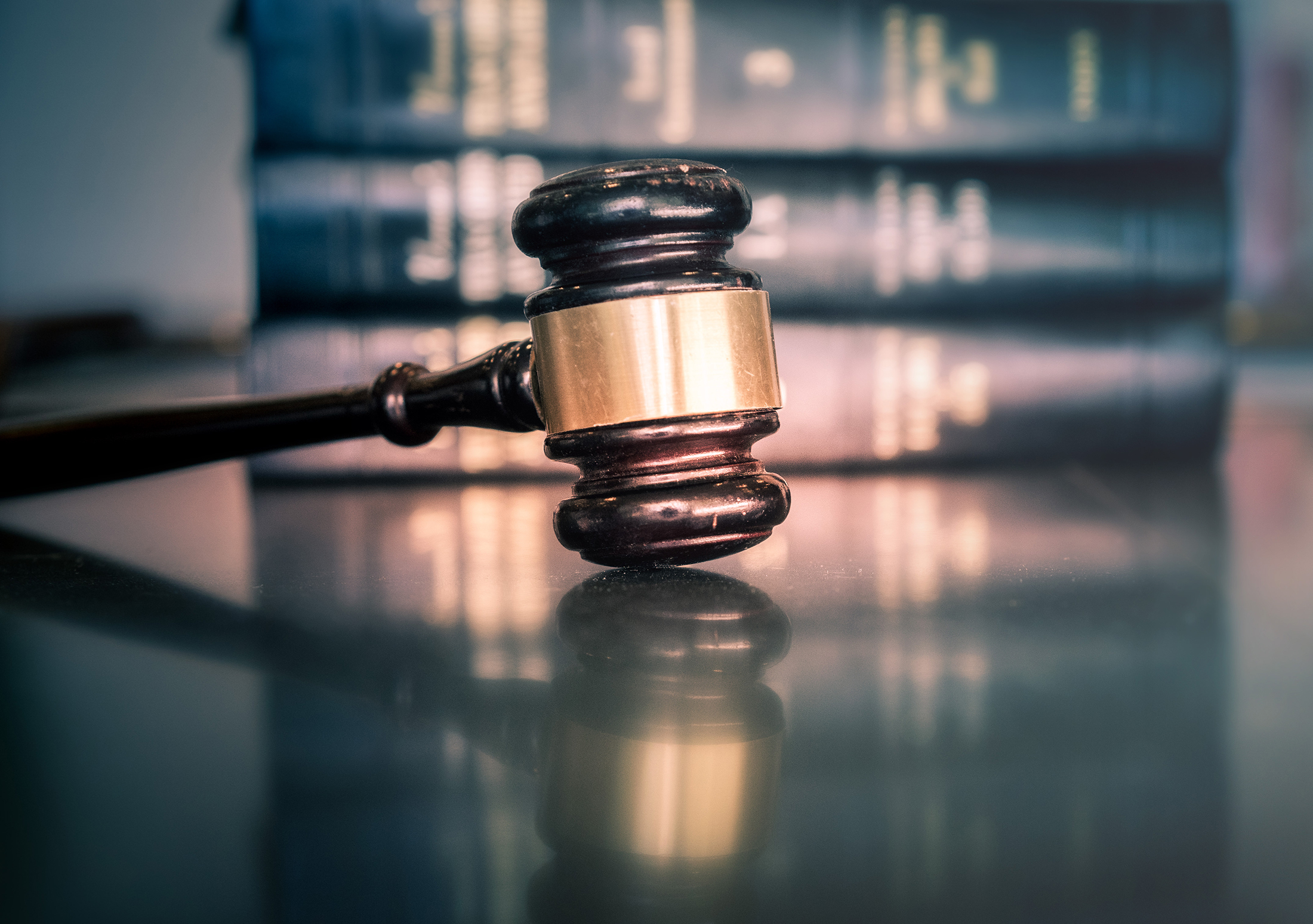Forced community-based psychiatric treatment orders need to be banned. Right now, patients who refuse these may face criminal penalties, more forced drugging, or re-institutionalization, raising international human rights concerns.
By CCHR International
The Mental Health Industry Watchdog
May 23, 2025
CCHR is calling for an overhaul of psychiatric hospitalization and community treatment laws. With 54% of U.S. psychiatric patients held involuntarily, CCHR warns the system has normalized coercion. Most U.S. states authorize Assisted Outpatient Treatment (AOT) laws that compel individuals in the community to receive psychiatric treatment—typically drug-based—under threat of court orders or rehospitalization. Critics say the laws criminalize noncompliance and medicalize dissent. A Pennsylvania source reported that under AOT, “noncompliance is pathologized, autonomy is dismissed…. Treatment ceases to be chosen; it becomes imposed.”[1]
A 2021 NIH-funded study published in Social Psychiatry and Psychiatric Epidemiology found that 70% of youth aged 16–27 who were involuntarily hospitalized reported long-lasting distrust of clinicians—even when they remained in therapy. Meanwhile, a Cochrane Review concluded that AOT laws showed no consistent benefit over voluntary care.[2]
Many mental health consumers are also forced to accept involuntary treatment in the community by being made subject to community treatment orders (CTOs), under threat that non-compliance can result in them being detained against their will in inpatient facilities and institutions.[3]
A broader 2016 systematic review published in The Canadian Journal of Psychiatry analyzed more than 80 studies on CTOs, including three randomized controlled trials and multiple meta-analyses. The result: “No evidence of patient benefit.” CTOs did not reduce hospitalizations or improve quality of life—but did result in patients spending significantly more time under coercive state psychiatric control.[4]
Patients are often forced onto antipsychotic drugs. Bioethicist Carl Elliott says such neuroleptics cause “tardive dyskinesia, a writhing, twitching motion of the mouth and tongue that can be permanent.” Psychotropic drug side effects can include violent behavior, aggression, paranoia, psychosis, dangerously high body temperatures, irregular heartbeat, heart conditions, disorientation, delusion, lack of coordination, suicidal tendencies, and numerous physical problems.[5]
Jan Eastgate, President of CCHR International, says, “Ironically, the very side effects of antipsychotic drugs—such as agitation and aggression—are the same behaviors often cited to justify forced hospitalization and involuntary treatment in the first place.”
Yet, under AOT regimes, complaints about side effects or treatment refusals are used against patients as evidence of illness. The term “anosognosia”—defined as an inability to recognize one’s illness—is routinely invoked to override consent, framing resistance as delusional and justifying further force.
As one media source put it: “It casts resistance as malfunction…. Instead of seeing dissent as meaningful or contextual, it reframes it as a symptom of a broken brain. This framing is not just misguided—it’s dangerous.”[6]
Amalia Gamio, Vice Chair of the United Nations Committee on the Rights of Persons with Disabilities, helped open CCHR’s Traveling Exhibit, Psychiatry: An Industry of Death in Los Angeles on May 17, denounced global psychiatric coercion: “Involuntary medication, electroshock, even sterilization — these are inhuman practices. Under international law, they constitute torture. There is an urgent need to ban all coercive and non-consensual measures in psychiatric settings.”
Rev. Frederick Shaw, Jr., President of the National Association for the Advancement of Colored People (NAACP) Inglewood-South Bay Branch, condemned how psychiatry disproportionately targets African Americans. “More than 27% of Black youth—already impacted by racism—are pathologized with labels like ‘Oppositional Defiant Disorder,’ which has no medical test,” he said.
“This mirrors how Black civil rights leaders in the 1960s were once labeled with ‘protest psychosis’ to justify drugging them with antipsychotics,” he added. “Psychiatry didn’t just participate in suppressing Black voices—it orchestrated it. And they’re still doing it.”
Psychiatric diagnoses in the Diagnostic and Statistical Manual of Mental Disorders (DSM) are not discovered through scientific testing but are voted into existence by APA committees. CCHR says despite the absence of objective medical proof for these labels, they can create lifelong patients to be drugged and subjected to involuntary interventions.
Forced psychiatric practices have been condemned by the United Nations (UN) and World Health Organization (WHO), which have repeatedly called for an end to forced institutionalization, electroshock, drugging, and community-based coercive measures.[7]
In the U.S., over 37% of children and youth in psychiatric facilities are subjected to seclusion or restraint.[8] Some—even as young as 7—have died under these conditions. In multiple cases, medical examiners ruled the deaths homicides, yet prosecutions have been rare.[9] “This is not mental healthcare. This is systemic cruelty and homicide,” adds Eastgate.
CCHR and its global network are demanding regulations that prohibit coercive psychiatric treatment. “These are abuses. Forced treatment is torture passed off as mental health ‘care,’” CCHR says.
[1] “Brave New Pittsburgh: Forced Use of Psychotropic Pharmaceuticals is Coming,” Popular Rationalism, 16 May 2025, https://popularrationalism.substack.com/p/brave-new-pittsburgh-forced-use-of
[2] “Brave New Pittsburgh: Forced Use of Psychotropic Pharmaceuticals is Coming,” Popular Rationalism, 16 May 2025, https://popularrationalism.substack.com/p/brave-new-pittsburgh-forced-use-of
[3] “Ensuring compulsory treatment is used as a last resort: a narrative review of the knowledge about Community Treatment Orders,” Psychiatry, Psychology and Law, 6 Jan 2025, https://www.tandfonline.com/doi/full/10.1080/13218719.2024.2421168#d1e194
[4] “Brave New Pittsburgh: Forced Use of Psychotropic Pharmaceuticals is Coming,” Popular Rationalism, 16 May 2025, https://popularrationalism.substack.com/p/brave-new-pittsburgh-forced-use-of
[5] https://www.cchrint.org/2022/04/04/cmhc-programs-can-harm-and-increase-the-homeless/; Susan Perry, “Recruitment of homeless people for drug trials raises serious ethical issues, U bioethicist says,” MinnPost, 11 Aug. 2014, https://www.minnpost.com/second-opinion/2014/08/recruitment-homeless-people-drug-trials-raises-serious-ethical-issues-u-bioet/; https://medium.com/matter/did-big-pharma-test-your-meds-on-homeless-people-a6d8d3fc7dfe
[6] “Not Broken, Not Sick: A Rebellion Against the Anosognosia Frame,” Underground Transmissions, 13 May 2025 https://undergroundtransmissions.substack.com/p/not-broken-not-sick-a-rebellion-against
[7] World Health Organization, “Guidance on mental health policy and strategic action plans,” Module 1, pp 3-4, 2025
[8] https://www.cchrint.org/2025/05/17/apa-faces-outrage-child-deaths-mental-health-failure/; Mohr, W, “Adverse Effects Associated With Physical Restraint,” The Canadian Journal of Psychiatry—Review Paper, June 2003, https://journals.sagepub.com/doi/pdf/10.1177/070674370304800509
[9] Deborah Yetter, “7-year-old died at Kentucky youth treatment center due to suffocation, autopsy finds; 2 workers fired,” USA Today, 19 Sept. 2022, https://www.usatoday.com/story/news/nation/2022/09/19/death-child-jaceon-terry-brooklawn-kentucky-youth-center/10428004002/; Taylor Johnston, “‘He didn’t deserve that’: Remembering young people who’ve died from restraint and seclusion,” CT Insider, 31 Oct. 2022, https://www.ctinsider.com/projects/2022/child-deaths-school-restraint-seclusion/



SHARE YOUR STORY/COMMENT